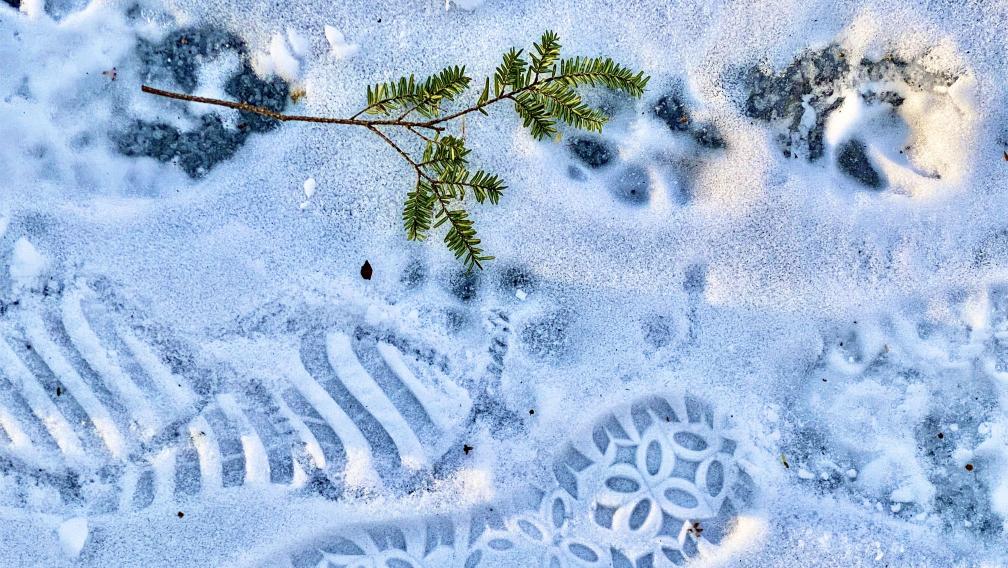On Finding Your Soul’s Response

When I was ten years old, I nearly drowned.
As I sat on the end of the jetty that summer day, relieved to be alone with my thoughts for a rare moment, I heard a soft sound on the wind, a voice. I could barely make it out, but when I turned, I saw an older woman treading water, about 100 feet away. And I heard her say, in a voice barely audible, “The tide is too strong and I’m so tired from swimming against it…I cannot resist it anymore...I’m too weak…Please help me…”
Her plea may as well have been today’s Omicron Variant Prayer: “Holy One, I know that you are with me. And I am so tired of swimming against the tide…Please help me.” Anxiety and uncertainty, exhaustion and overwhelm can make this period of the pandemic seem endless — and endlessly disorienting.
Getting back to my story, here’s what happened that day long ago:
I had always been afraid of swimming, despite the lessons my parents dutifully offered their children, so I couldn’t swim much at all. But in that moment, when I heard a cry for help, I couldn’t do nothing. I couldn’t just watch her drown. I had to do something to help, even if I put myself at risk. In an instant, I plunged into the water — and immediately began to be pulled out to sea by the same riptide. It all happened so fast; we were moving quickly, flailing and sputtering, farther and farther away from the shore.
Luckily for the two of us, my older brother, who was swimming way out beyond the jetty, almost out of view, looked in our direction. He understood immediately what was happening and raced over. He carried the two of us to safety, against the tide, as we held onto the raft from which the woman had originally fallen. And we were saved.
At the time, I felt satisfied with myself for putting the needs of someone before my own, as I had been taught in church, at school, and at home. Surely that is what Jesus would have done, right?
With age comes understanding. As least we hope so. The big question facing people of good will today, as I see it, is not, “Who can I save?” (Followed by a wave of overwhelm.) Rather, it is more like, “I cannot do it all, so what is my work to do?” While my naivete told me otherwise all those years ago, it’s pretty clear to me today that a person who doesn’t swim, attempting to save a drowning person, is neither prudent, nor sensible — nor even merciful. It is doubtful that I was called to martyrdom at that age!
Perhaps “my work to do” at the time was to have run and called for help. Today, I understand “my work to do” as one part of a larger prayerful and communal effort to enter into a life of love and service — which looks different for each of us. There are so many urgent and emergent social issues calling for a response, none of us can do it all. Nor should we try; there is no time to waste on doing someone else’s work, poorly.
The Pauline account of the gifts of the Spirit describes parts of the Body of Christ as both unique and interdependent. There is a role for each of us and it can be known by paying attention to reality, paying attention to the movement of our own spirits, and by prayerful reflection and by community feedback. It can be known in service, with mentors, and through spiritual practices that build intimacy with the Divine, so that we stay true to our motivations and highest calling. The work is both interior and exterior; it grows from both stillness and action.
There is a role for each of us [in the Body of Christ] and it can be known by paying attention to reality, paying attention to the movement of our own spirits, and by prayerful reflection and by community feedback.
Interior, active, personal, communal, mystical — the work that needs to be done is complex and requires careful reflection alone and in community. The author of The Inner Work of Racial Justice, Professor Rhonda Magee, lifts up how community can reveal our healing roles to us when she prays: “May we be for one another mirrors of each other’s strengths and gifts. May we face the social ills competing for our attention with prudence, courage, and faithfulness.”
Modern-day mystic Andrew Harvey writes about the interconnectedness of all our lives and how our choices really do matter: “How we live, work, love, celebrate, and care for each other and all of Creation will profoundly affect the lives of our friends, partners, children, grandchildren, and descendants — and the [ultimate] destiny of humanity. You are here at this time in history for deeply personal reasons as well. Find it in your soul and let it guide your personal response…we change ourselves so we can change the world.”
Holy One, we pray for guidance to find our own “best way”
of caring for this world, in its brokenness and need.
May we feel Your loving presence surround us.
May we call upon the support of wise and loving beings.
And may our hands be busy, even as our souls await
Your revelation of our unique contributions
to the healing of humanity and all Creation.
Amen.
Dr. Kathy Bozzuti-Jones is Trinity’s Associate Director, Spiritual Practices, Retreats, and Pilgrimage.





